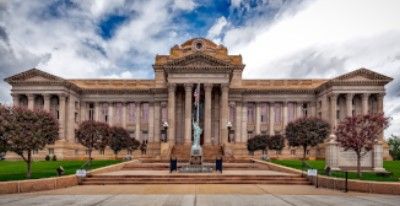Happy Bill of Rights Day!

On 15 December 1791, the third through tenth amendments to the United States Constitution were ratified by Virginia. With Virginia being the 10th of 14 states to approve these last 8 of the first 10 amendments, the Bill of Rights was fully ratified. 150 years later in 1941, President Franklin Delano Roosevelt issued a proclamation that designated 15 December 1941 as Bill of Rights Day. Many presidents followed in this tradition, with the practice being upheld consistently since 1962.
For the Fully Informed Jury Association, Bill of Rights Day has special meaning. Jury rights are explicitly protected more than any other rights in the Bill of Rights.
Indictment by grand jury is specified in the Fifth Amendment:
No person shall be held to answer for a capital, or otherwise infamous crime, unless on a presentment or indictment of a Grand Jury, except in cases arising in the land or naval forces, or in the Militia, when in actual service in time of War or public danger; nor shall any person be subject for the same offence to be twice put in jeopardy of life or limb; nor shall be compelled in any criminal case to be a witness against himself, nor be deprived of life, liberty, or property, without due process of law; nor shall private property be taken for public use, without just compensation.
Trial by jury in criminal cases is specified in the Sixth Amendment:
In all criminal prosecutions, the accused shall enjoy the right to a speedy and public trial, by an impartial jury of the State and district wherein the crime shall have been committed, which district shall have been previously ascertained by law, and to be informed of the nature and cause of the accusation; to be confronted with the witnesses against him; to have compulsory process for obtaining witnesses in his favor, and to have the Assistance of Counsel for his defence.
Trial by jury in civil cases is specified in the Seventh Amendment:
In Suits at common law, where the value in controversy shall exceed twenty dollars, the right of trial by jury shall be preserved, and no fact tried by a jury, shall be otherwise re-examined in any Court of the United States, than according to the rules of the common law.
Additionally, jury rights are protected indirectly in many places in the Bill of Rights including:
- the prohibition against double jeopardy in the Fifth Amendment,
- the due process clause of the Fifth Amendment,
- the ninth amendment reserving retained rights to the people, and
- arguably others.
Why were jury rights so important to the Founders that they are guaranteed not only in the body of the Constitution, but also directly and indirectly protected in the Bill of Rights? One major reason was the right of conscientious acquittal by jury nullification, which I discussed extensively on Constitution Day:
On Constitution Day, Don't Forget Jury Rights
The government's endless attacks on our jury rights—and an those who choose to fully inform people to ensure we retain them—is a clear testament to their power to constrain government and its abusive prosecutions.
Thomas Jefferson wrote in a letter to Thomas Paine just days before the storming of the Bastille that would spark the French revolution that "I consider [trial by jury] as the only anchor, ever yet imagined by man, by which a government can be held to the principles of it’s constitution."
On this Bill of Rights Day, let us reaffirm our commitment to taking back from the government what our Founders recognized as a linchpin for securing all the rest of our rights codified in the Bill of Rights as well as the many more we retain beyond the words of the Constitution.

